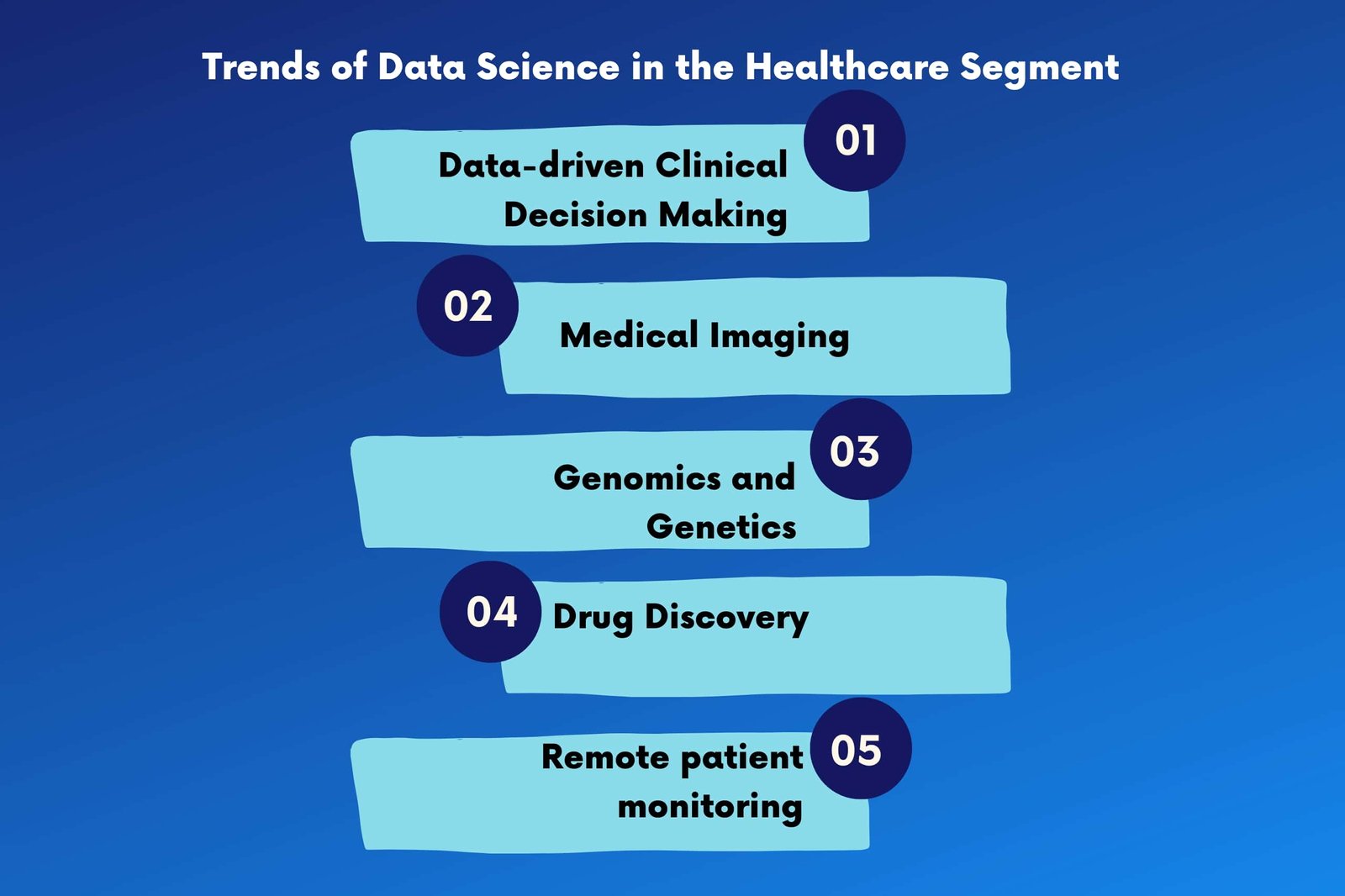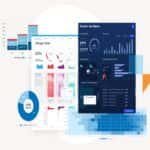The surge of Data Science across the different industrial domains has made it one of the most powerful technologies. It finds several applications that implement the concepts of mathematics and statistics to discover patterns in large datasets. One of the major transformations that Data Science will trigger is its application in the healthcare segment.
The healthcare segment is expansive, and there is a huge influx of data every day. This data can be related to the patient’s medical history and current diagnosis. It is highly sensitive information and can disclose several useful insights. Here Data Science tools can unfold the patterns and observations that can help the healthcare portioners make the right call. Thus there is a growing demand for Data Science course for doctors and healthcare practitioners.
Key Take Aways
- Healthcare software development services and Data Science solutions are an integral part of the healthcare industry.
- With the help of Data Science tools, healthcare institutes can derive faster and more accurate diagnoses, thus ensuring the right treatment and reducing the risk to patient’s health.
- Did you know that more than a billion clinical documents and different types of data in healthcare that are being produced in the US alone? And a deep mine of untouched data remains out there. Hence, there is a dire need to actively adopt the Data Science practice and unfold the information veiled under this data.
Types of Data in Healthcare
As a part of their daily work, healthcare professional has to deal with different types of data, which include:
Clinical Data– It includes data that determines the patient’s health, documentation of care, and health status. It is collected via clinical trials and patient registries.
Demographic Data– It has information related to the name, gender, age, and country of birth of the person. The demographic data is helpful in statistical analysis.
Psychosocial Data– It refers to the data related to the patient’s emotions, behavioral and environmental stats. It helps better assessment and evaluate an individual’s mental health and social well-being.
Lifestyle Data- Lifestyle also impacts the health status of an individual. It helps healthcare practitioners create a person’s risk profile and assess whether or not the patient is prone to chronic diseases.
Environmental Data– Factors like the quality of air, water, and the environment where we live can impact a person’s health. Thus this data finds application in unfolding the root cause of certain diseases.
Genomic Data- Another significant data that healthcare practitioners deal with is genomic data. Using this information along with medical records can help improve the genetic disorder’s diagnosis, medical practices, and treatment.
Data Science tools can potentially analyze large volumes of data accurately, flawlessly, and in less time. Thus it makes Data Science one of the most sought-after technologies of modern times. Let’s unfold some key trends in Data Science in the healthcare sector.
Trends of Data Science in the Healthcare Segment
1. Data-driven Clinical Decision Making
Predictive analytics can greatly help medical professionals. It allows them to gain insights into treatment effectiveness weeks or even months. Sometimes, it can help in detecting the possibility of disease before it surfaces. With the age of technologies like Data Science and Big Data, it will become easier to speed up the decision-making process for doctors, thereby allowing them to switch to a more effective course of treatment based on their patient’s needs.
Predictive analytics has become even more powerful because of the search for machine learning models. For example, when the practitioner determines an individual’s risk of cardiovascular diseases, the researchers have shown that the effectiveness of prediction and treatment improves when it blends the machine learning model that factors in parameters like social, economic, and environmental factors. So rather than sticking to the trial-and-error model, medical practitioners will now have a more accurate line of treatment. All this will eventually ensure better treatment and improve the patient experience.
2. Medical Imaging
The next promising application of Data Science in healthcare is medical imaging. There are several imaging methods that are used to detect the medical condition of the patient, but when it comes to their effectiveness, it is still questionable.
With Data Science, healthcare institutes have the power to harness tools like deep learning algorithms, which improve imaging accuracy by feeding the algorithm of the previous examples. These models can improvise with time and can give a more accurate outcome.
3. Genomics and Genetics
Genomics and genetics can greatly benefit from Data Science tools and techniques. It allows the healthcare institution to provide tailored solutions and treatments based on the patient’s genetic makeup.
With the help of Data Science techniques, healthcare professionals can integrate different strands of data with the genetic information required to derive results and understand the implications of one’s DNA on disease development and the response of the medication for the same.
4. Drug Discovery
The pharmaceutical industry is expanding and is greatly benefiting from the development in the field of technology. From advanced research and development to the new practices allowing the pharma companies to manufacture medicines and vaccines or some of the key applications of technology in the pharma segment.
With the help of Data Science tools, pharma companies can boost the speed and momentum of a drug trial, ensure better screening, and use AI to develop new protocols for drug safety.
5. Remote patient monitoring
The pandemic triggered the alarm and shifted the focus to telemedicine and remote patient monitoring. While these services were already in existence but only gained momentum after the pandemic.
Although the pandemic has subsidized, but the telehealth care services and on-demand services, they have become a norm across the breadth of the industry. In remote patient monitoring, using the internet of things like wearable gadgets and Data Science can help keep track of the patient’s medical history and the response to the medicine, thereby helping the healthcare product stationers adopt the right course of action to improve the effectiveness of medicines.
So, we can conclude that the benefits of physicians learning Data Science open unparalleled opportunities to revolutionize the healthcare practices.
What’s Next?
While many consider Data Science to be associated only with the field of technology, its growing application and ubiquitous presence across the industry highlight the significance of this technology. Hence every medical practitioner or individual who wishes to work in the healthcare domain should have some preliminary knowledge of the concepts of Data Science and its usefulness.
The ability of Data Sciences to mine large datasets quickly and accurately provides healthcare professionals with unprecedented levels of insight. Thus helping them assess short-term trends and long-term patterns that may affect patient prognosis or risk factors over time. With this knowledge at their fingertips, clinicians can develop strategies to address these changes while ensuring optimal health outcomes for each patient.
By utilizing the power of Data Science in healthcare settings, practitioners can improve the quality of care they offer and increase efficiency across all areas – ultimately leading towards a healthier population overall!
Wrapping It Up !!!
In conclusion, Data Science has revolutionized the healthcare industry. Clinicians now have access to powerful tools for uncovering correlations between variables and predicting patient outcomes. The role of a healthcare Data Science specialist is going to witness an exponential rise in the years to come. The Data Science course in healthcare can help you master the concepts of Data Science. If you want to know how to become a healthcare data scientist, you can join the Data Science course by Pickl.AI and start your journey today.












